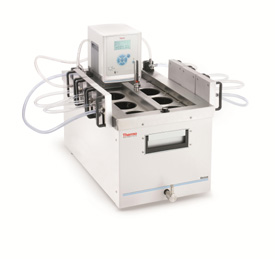Thermo Fisher Scientific, the world leader in serving science, today announced the new Thermo Scientific Horizon FTS (fogging test system).
Manufacturers now have an enhanced ability to define suboptimal materials prior to vehicle completion, reducing the potential for legal and safety issues following vehicle release into the market. Reliable and easy to use, the Horizon FTS boosts workflow and productivity by allowing rapid testing of materials in the design phase, reducing vehicle production time and increasing cost-effectiveness.

Two models, AC-FTS and PC-FTS, maintain consistent, accurate and repeatable test conditions, producing results that fulfil the requirements of the Deutsches Institute für Normung (DIN), Society of Automotive Engineers and International Organization for Standardization for testing the out gassing of materials in motor vehicles.
The fogging test is used to assess the evaporation of volatile organic compounds (VOCs) from the soft PVC, leather and textiles used in vehicle manufacture. Extreme temperatures can cause release of VOCs, which condense on the windshield and windows and can obscure a driver's vision, creating a dangerous driving condition. The DIN standards have been developed using Thermo Scientific instruments and represent the official word in fogging safety. In accordance with DIN 75201, Thermo Fisher developed the Horizon FTS to measure VOC condensation by reflectometric (deposition on glass) and gravimetric (weight of material deposited) methods, making it a complete system for these vital safety tests.
Thermo Fisher is a world leader in producing reliable, consistent fogging test systems with applications in the automotive, textiles, academic, aviation, marine and rail manufacturing industries. The Horizon FTS system is an important innovation in safety testing.